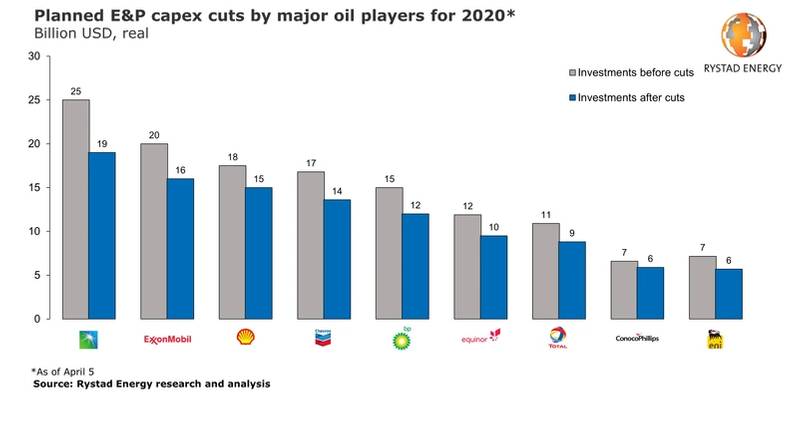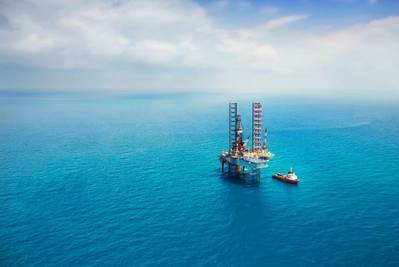Offshore Drillers to Lose $3B Due To COVID-19, Low Oil Prices
Offshore drillings contractors leasing drilling rigs to oil and gas companies are set to lose contracts worth $3 billion in combined revenue in 2020 and 2021, Rystad Energy said Thursday, citing the impact of the coronavirus pandemic and low oil prices.
According to Rystad, the estimated contract value in 2020–2021 is $30 billion in total; $20 billion in 2020 and $10 billion in 2021.
"So far six rig years of contracts have been canceled, translating to approximately $400 million in contract value. These numbers will only increase as operators continue to slash capex budgets and delay projects," Rystad said Thursday.
"More than $22 billion in contract value was wiped off the books as a result of contracts being canceled between 2014 and 2017. Now, in the infancy of a new downturn, a market that was only beginning to return to a healthy level of contracting activity, contract volumes and day rates has seen its hopes crushed,“ says Rystad Energy’s Head of Offshore Rig Market Services Oddmund Føre.
The likes of Valaris, Maersk Drilling, Shelf Drilling, and Borr Drilling have all recently lost contracts or seen them cut short much earlier than expected, due to the whole Covid-19/OPEC/OPEC+ situation.
Risk of failing to service debt
If anything was learned from the previous crisis, Rystad said, it was that such struggles can be brutal and can last a long time.
"Alas, there are plenty of reasons to expect that the battle that lies ahead for drillers will be considerably tougher than the one fought to get through the previous downcycle. Even top drillers will be at risk of failing to meet debt payments and may need restructuring," Rystad added.
"Of the 100 listed energy service companies analyzed by Rystad Energy across the various service segments for this research, more than two-thirds are unlikely to be able to meet their interest payment obligations on time this year. Many offshore drillers will be living on the edge in the coming months," the company said.
As per the Norwegian energy intelligence company, the analysis shows that offshore drillers and offshore vessel providers will generally be unable to pay their total outstanding debt of 2020 based on their cash flow from operating activities (CFO), unless they are able to make sufficient capex cuts. Otherwise, they will have to turn to capital markets for refinancing, Rystad said.
Rystad added: "The credit default swap spread, a measure of the cost of issuing debt, skyrocketed early this year for some offshore drillers, which as a result now face significantly higher costs for refinancing debt."
Nothing there to cut
Rystad has pointed to the fact that due to the previous downturn, oil and gas firms canceled contracts and re-hired rigs at lower day rates. However, it seems that there's no room for a similar strategy these days.
Rystad said: "One of the trends seen five years ago was that E&Ps canceled many contracts and chose not to declare many contract extension options, and thereafter re-hired rigs at lower rates. This, however, is not likely to be a factor in the current downturn. Rig rates had started to move upwards from opex levels in the months leading up to the coronavirus outbreak, but not enough to constitute any significant cost savings for E&Ps if they were to cancel and re-hire a rig."
"Especially in 2021, there will hardly be any contracts left for the E&Ps to cancel. This means that the rig industry is already dependent on new contracting activity to maintain survivable levels of utilization – and new contracts will be really difficult to secure in the current environment," the company explained.
"Any chances of returning to previous activity and price levels have been torpedoed by the twin effects of the pandemic and the OPEC+ dispute. We expect day rates to be pushed down to opex levels once again as the industry now tries to continue to cut costs and improve its performance in a challenging environment,” adds Føre.











